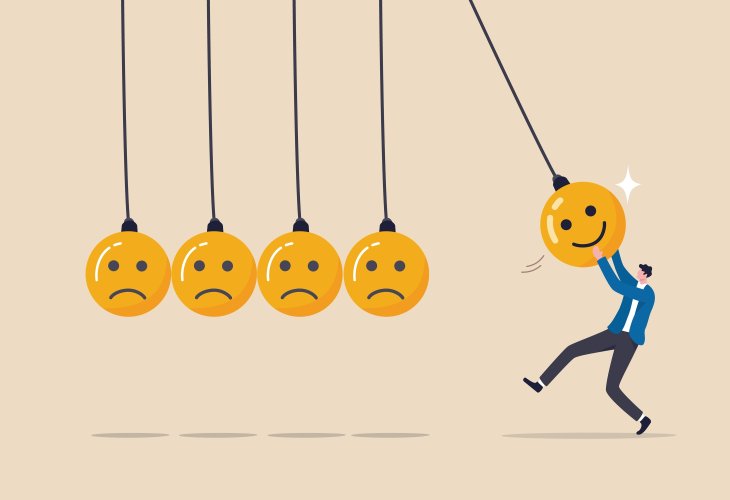Personality Development
Why Is Positive Thinking So Important?
Why sad news sells, and how our mindset impacts life expectancy.
 (Illustration: shutterstock)
(Illustration: shutterstock)Positive thinking affects us far beyond just improving our mood or making us more productive. It has a wide-reaching impact on many areas of life—so much so that studies show it can even increase your lifespan! According to research, optimistic people—those who tend to think positively—live, on average eight years longer than pessimists who see the world through a darker lens.
Why is that? People with a positive mindset experience less stress and anxiety in daily life. Even when facing challenges, they usually believe there’s a solution—they just need to find it. Positive thinkers are more motivated to take care of themselves, and when faced with serious health issues, they’re more likely to follow medical advice because they believe things can improve.
In contrast, pessimists often experience more helplessness and despair, and they feel constant stress. Their default view is that if there’s a problem, it’s probably hopeless. Instead of looking for solutions, they dwell on how bad things are. Naturally, this leads to lower mood, a lack of motivation to make lifestyle changes, and if they face a health issue—they’re less likely to believe they can recover, which affects how well they cooperate with doctors or treatments.
Positive thinking isn't just a feel-good philosophy- it's a lifestyle. It helps people move forward and get better results in pretty much every area of life. In a way, it’s a self-fulfilling prophecy: If someone believes they’ll succeed, they’ll usually work harder than someone who assumes they’ll fail.
A person who drives recklessly or keeps smoking despite knowing the risks isn’t necessarily a “positive thinker.” Saying “It’ll be fine” isn’t always optimism—it can be denial or wishful thinking, and those won’t help anyone make real progress. In fact, they often lead to worse outcomes.
The Everyday Struggles
One of the main things that can pull us toward negative thinking is the stress of daily life. You don’t need a major disaster to feel overwhelmed. A few weeks of constant arguments, traffic jams, or work pressure can be enough to slowly shift your mindset toward seeing life more negatively than it really is.
When life starts to feel heavy, it’s crucial to pause and recharge—whether through hobbies, time with friends or family, or anything else that gives you emotional energy. The more we maintain these “energy resources,” the less likely we are to get dragged down by daily stress and develop a negative view of reality.
How Can We Break Out of Negative Thinking?
Encourage others: Make it a habit to say something kind or supportive to someone at least once a day—compliment, show appreciation, or thank someone. Within just two or three weeks, you’ll notice your brain naturally starts to look for the positive in the world around you.
No Negativity: For one full week, make it your mission to not engage with even a single negative thought. No matter what happens, catch every negative thought immediately and flip it—find the good side, the opportunity, or the lesson. Think of it like as a "mental detox" from negativity. After just one week, you’ll likely start to see a real shift in your mindset.
The Influence of Society and Media
It’s worth remembering that we live in a society that is wired for negative thinking. The media plays a huge role in shaping how we think—and it tends to focus heavily on the bad stuff.
If you walked past a newsstand and saw a front-page photo of a sunny park with the headline “Great things ahead this week!”—would you buy that paper? Probably not.
But if the cover shows missiles or a war brewing, you’d be far more likely to grab it—partly out of curiosity, but also because we’ve been conditioned to believe that knowing the dangers will somehow protect us. That’s why bad news sells. The media keeps pumping out negativity, and we soak it in, slowly shaping a darker view of reality.
Ads also start by convincing us how tired, burnt out, or unhappy we are, and then offer us their product or vacation as the “solution” to a problem we didn’t even know we had.
We need to take the opposite path—and train ourselves to think positively as much as we can.

